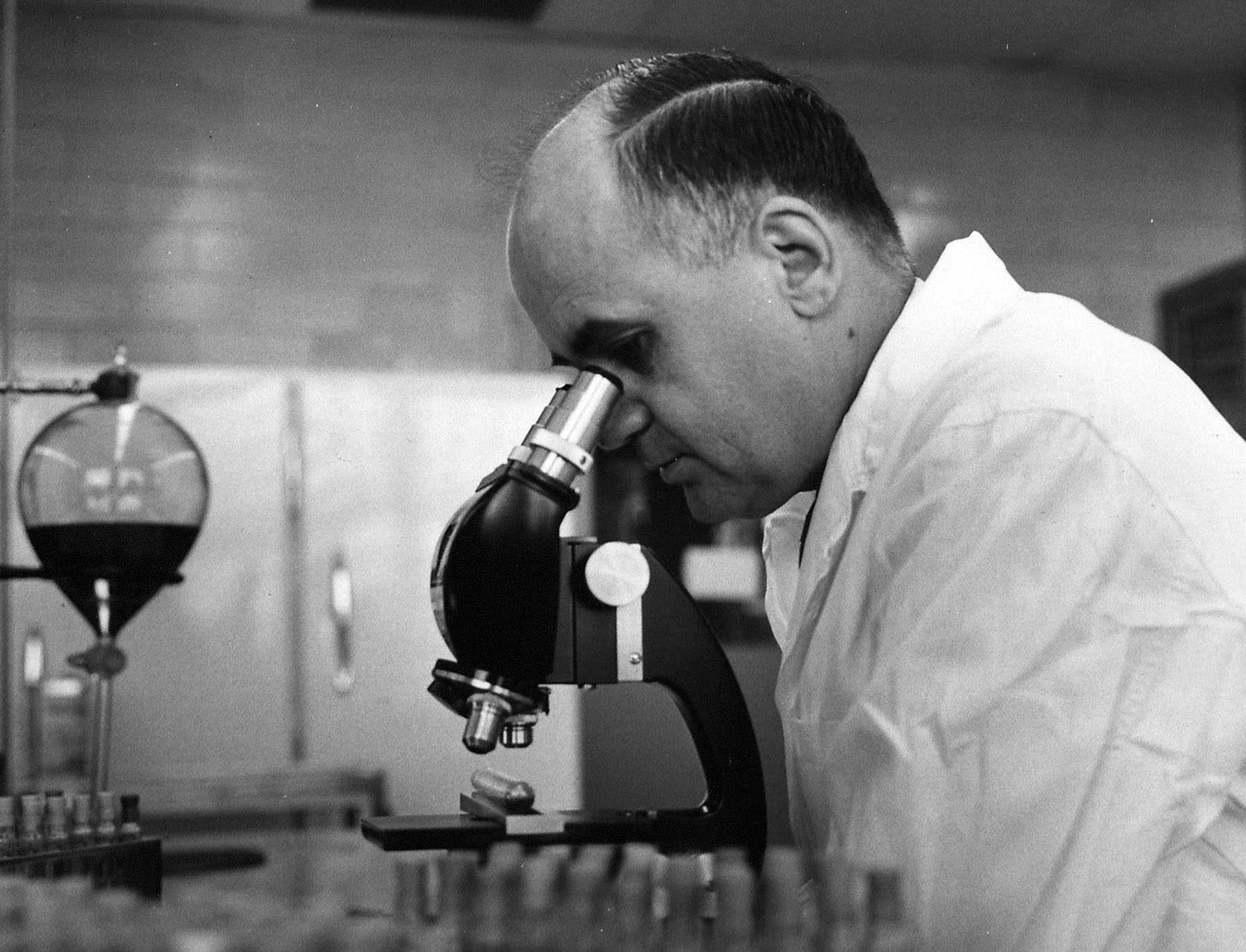Dr. Maurice Hilleman
The most successful vaccinologist in history

Dr. Maurice Hilleman in the lab inspecting a sample
Over six decades, American microbiologist Maurice Ralph Hilleman (1919–2005) unlocked the secrets of immunology and went on to develop about 40 vaccines. Among his credits are vaccines for measles, mumps, hepatitis A and B, chickenpox, meningitis, and pneumonia, all of which are routinely recommended for youngsters. Each year, Hilleman's vaccines save millions of people worldwide from death, deafness, blindness, and other permanent disabilities.
Time line of Dr. Hilleman's life:
- 1919 - Born in Miles city, Montana
- 1930 - Spends his youth working on a farm to provide for his family during The Great Depression
- 1938 - Enrolled into Montana State University on a scholarship
- 1941 - Graduated first in his class, with a bachelor's degree in chemistry and microbiology. Also, received a fellowship into the University of Chicago
- 1944 - Awarded a PHD in microbiology and chemistry. Also, joins the virus laboratories of E R Squibb & Sons in New Brunswick, New Jersey
- 1944 - Hilleman developed a vaccine for Japanese encephalitis, which was infecting and killing U.S. soldiers stationed in the Pacific during World War II
- 1948 - Began working for the Walter Reed Army Institute of Research in Washington, D.C.
- 1957 - Hilleman identified an outbreak of pandemic influenza in Hong Kong, saving millions of lives and defining his understanding of the disease.
- 1957 - Hilleman left Walter Reed and joined Merck on New Year's Eve, to run its viral research program.
- 1966 - Received numerous honorary degrees, including an honorary doctorate in science from Montana State University
- 1967 - Merck released Hilleman's vaccine for mumps
- 1971 - Merck released Hilleman's MMR vaccine, a one-shot injection that protects children from measles, mumps, and rubella.
- 1971 - Hilleman introduced a vaccine for Marek's disease, a virus that causes lymphoma in chickens, at one time causing millions of dollars in losses each year.
- 1981 - Merck released Hilleman's hepatitis B vaccine
- 1988 - Given the National Medal of Science by President Ronald Reagan
- 2005 - Hilleman died of cancer at a Philadelphia hospital on April 11, 2005.
If I had to name a person who has done more for the benefit of human health, with less recognition than anyone else, it would be Maurice Hilleman. Maurice should be recognized as the most successful vaccinologist in history.
Find out more about Maurice Hilleman on his Wikipedia page, and on his Encyclopedia entry.